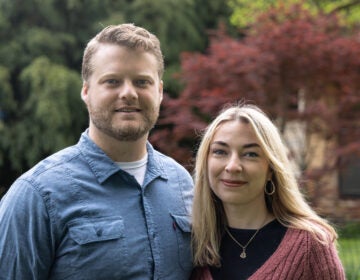Complicated matter of AVI in Philadelphia grows thornier still
Mayor Michael Nutter’s new property tax plan for Philadelphia seems simple enough at first. Assess the current-market value of all properties in the city, then levy a uniform property tax on those updated values. In the process, the higher property values should yield an extra $94 million for the ailing school district.
Simple.
But when Councilman Bill Green ran the numbers for the Actual Value Initiative or AVI, he discovered a critical wrinkle in the mayor’s plan. When all is said and done, businesses will end up getting a big tax break, while residents’ bills could rise by 25 percent or more.
On Tuesday, Green stood outside a Center City office high-rise to illustrate this point.
“Commercial and industrial properties like this one will see a $328 million aggregate shift from them to residential property owners,” said Green.
Why is this? Because business properties are assessed more often than residential ones, they’ve already been taxed at rates closer to current market value.
So if you’re a business, AVI could be very good for you.
But if you’re a homeowner whose tax bill could go through the roof, you’re hoping there’s another option.
Green says another option would be to generate the $94 million for the school district not from property tax, but from the Use and Occupancy Tax, an obscure levy paid only by businesses.
On Wednesday, the city finance director Rob Dubow admitted that AVI would shift the tax burden from business to residential property. He also said Green’s Use and Occupancy Tax idea is at least worth considering.
“Those amendments would meet the administration’s primary objectives,” said Dubow.
While that option is debated, time is running out. Council must decide on AVI before the new fiscal year begins July 1.
But there’s another hitch in the plan. For technical reasons, the city needs state legislation to authorize the tax rate change associated with AVI.
And that legislation, Dubow said, is stalled.
Councilman Jim Kenney asked Dubow about what happens if the legislation isn’t passed.
“But you do have a plan B … ?” said Kenney.
“We don’t have a plan B yet,” replied Dubow.
The state Legislature won’t meet again at least until June 4.
WHYY is your source for fact-based, in-depth journalism and information. As a nonprofit organization, we rely on financial support from readers like you. Please give today.




